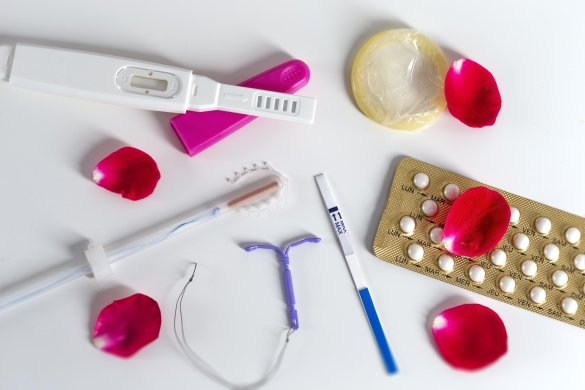A study recently published by the National Center for Biotechnology Information (NCBI) suggests that the implantable birth control device Essure “should be removed in all symptomatic women.”
According to patient reports, most adverse health effects – including perforations, expulsion, and infection – associated with the Essure device have been attributed to incidents during and immediately after implantation. Researchers in this study, however, focused on analyzing the prevalence and severity of non-gynecological symptoms before and after Essure implants were removed.
Non-gynecological symptoms associated with Essure include:
- Memory disorders
- Weakness
- Chronic pelvic pain, back pain, arm / leg pain
- Anxiety, nervousness, and other psychiatric disorders
- Dizziness, vomiting, nausea
- Vision impairments
- Irritable bowel syndrome, gas / bloating
- Interstitial cystitis
- Hypersensitivity and allergy (i.e. rash and urticarial)
As part of the study, women who experienced at least four non-gynecological symptoms associated with Essure completed a questionnaire prior to device removal, as well as 1, 3, and 6 months after removal. Patients with bleeding or tube perforation were excluded from the study.
Patients in the study experienced their first clinical symptoms at anywhere from 1-60 months (median 13 months) post-placement, and had their devices removed within 12-72 months (a median of 38 months).The most prevalent symptoms prior to device removal ranged from urinary tract disorders (26%) to weakness (96%).
In terms of symptom severity (on a scale of 0 to 10) researchers found the following:
- Prior to removal of Essure, the average symptom severity reported by patients was roughly 8.4.
- After Essure implants were removed, patients reported significantly less pain at the 1, 3, and 6 month marks (ranging between 3.9 and 4.8).
Ultimately, researchers observed a substantial decrease in symptom severity when Essure devices were removed – leading them to conclude that all women with Essure devices who experience symptoms should have them removed.
BCH: Helping Essure Victims Nationwide
The study is yet another affirmation of the dangers associated with Essure, a permanent, implantable birth control system that’s been used by over 750,000 women as a means to prevent pregnancy. In the years following its 2002 FDA approval, Essure – which was developed by Conceptus, a company later bought by Bayer, became the target of thousands of lawsuits filed by women and families who claim the medical device caused severe and fatal injuries.
What followed was a timeline of Essure’s ultimate downfall:
- In April 2015, the FDA launched an investigation into Essure after receiving thousands of complaints, including reports of at least five women who died following Essure implantation.
- In late 2015, an FDA expert advisory panel convened to evaluate Essure’s risks and benefits, while lawmakers proposed legislation to take Essure off the market.
- In February 2016, the FDA ordered Bayer to place a “boxed warning” on Essure’s label, ensure patients considering the device were properly informed of risks by using a decision checklist, and conduct a post-market study.
- In 2018, after the FDA restricted sales of Essure to enforce compliance with patient decision checklists, Bayer announced it would stop selling Essure by the end of 2018.
Essure may no longer be sold, but its impact is still felt by thousands of women who must endure painful symptoms, serious injuries, and fatal risks. At Bailey Cowan Heckaman PLLC, our award-winning attorneys are actively representing women nationwide in Essure litigation. If you have a potential case, contact us for a free consultation.

